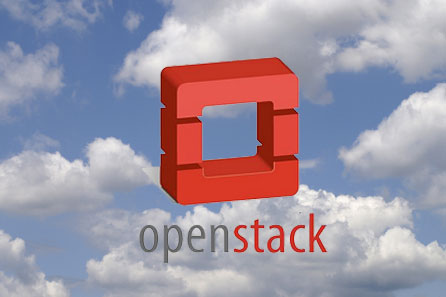Should the OpenStack Community Embrace Amazon & Google?Should the OpenStack Community Embrace Amazon & Google?
In an open letter, CloudScaling's Randy Bias has called on the OpenStack community to work more closely with Amazon and Google. He argues that the future of OpenStack is leading the innovation when it comes to private and hybrid clouds.
July 24, 2013


openstack-cloud
The OpenStack Foundation, announced last year, is right on time with its official launch in September, prior to its next OS release and its conference in San Diego next month.
Should the OpenStack community focus on creating an open source alternative to Amazon and Google? Or should it make it easier to shift OpenStack clouds to Amazon Web Services and Google Compute Engine for companies that want to use both approaches in a hybrid infrastructure?
CloudScaling today called on the OpenStack community to work more closely with Amazon and Google. In an open letter to the OpenStack community, co-founder and CTO Randy Bias is making the case that OpenStack must embrace other public clouds rather than set themselves up as an open alternative to the mega-clouds. If the future is hybrid, he argues, OpenStack must play with the dominant public clouds.
"For three years, elements of the OpenStack community have arbitrarily and unfairly positioned OpenStack agains the incumbents, especially Amazon Web Services and VMWare," writes Bias. "The practical expression of this view is that OpenStack should build and maintain its own set of differentiated APIs. I’ve made no secret of my belief that this choice will harm OpenStack, and perhaps already has."
This position aligns with CloudScaling’s interests, but also raises broader questions about OpenStack’s role going forward and how it relates to other clouds. At the heart of this topic are application programming interfaces (APIs) Bias reviews the history of OpenStack, noting how it initially had no native APIs, but now has a native API that is largely identical to the API for the public cloud of Rackspace Hosting, the initial patron and largest user.
Cloud APIs at Heart of Debate
The issue is governance of OpenStack. The community now controls the direction of the project, and Bias believes that native APIs are dangerous to the project. “It’s time we advocate a public cloud compatibility strategy that is in all our best interests, not just those of a single, albeit substantial, contributor,” writes Bias. “Failing to make this change in strategy could ultimately lead to the project’s irrelevance and death.”
Given where CloudScaling is positioned, it’s no question that the evolution of OpenStack is of upmost importance. CloudScaling has focused on AWS compatibility, seeing this as imperative to customer needs. Providing a production grade version of OpenStack. CloudScaling is designed to have as much resiliency and fault tolerance as possible, with an emphasis on compatibility with Amazon.
“What we’re seeing with our customers is that they’re all looking at the public cloud,” said Bias in a DCK interview last June. “They want to make sure they’re future-proofing themselves in that regard … people want a private, hybrid cloud that they can interconnect with public.”
Innovation vs. Compatibility?
AWS is the big player is the public cloud space, so it makes sense that CloudScaling would insure compatibility for these customers. Architectural compatibility means that apps can move freely from private to public and back, when needed.
“We don’t see ourselves as being part of the OpenStack market, Bias said. "We see ourselves as part of the private cloud market. “Businesses are realizing that they need more of a scale-out model to increase time to market. Get solutions out faster and move in a more agile fashion.”
Bias’ open letter goes on to discuss how AWS has grown and controlled the innovation curve in the public cloud. He argues that OpenStack can be in control of the innovation curve in private and hybrid cloud. But to do this, “it must embrace the public clouds, to which enterprises want to federate.”
“I have long believed that private and public clouds needed to look similar and connect if we’re to have massive cloud adoption,” writes Bias. “We are now seeing enterprise customers demand a hybrid cloud solution: a private cloud connected to a public cloud so they can run workloads in both places and generally have choice and control that drive positive economics and business agility.”
Ultimately, Bias is advocating a full embrace of Amazon and the AWS APIs. Bias gives a proposal that he argues results in a win for everyone, including Rackspace, which holds a major interest.
Cloud Wars
Dubbed in the media as "the cloud wars," there are a handful of open source frameworks competing (or not, depending on who you ask). OpenStack, CloudStack, Eucalyptus, and OpenNebula all play on the open source front. Bias wants OpenStack to win, and to do so, he argues it needs to embrace the public clouds.
AWS and Google are seen as the competition – and in some ways, they are. However, approaching clouds from a hybrid perspective means embracing rather than overtaking is the way to go. The biggest concern is enabling cloud agnosticism. Lock-in is a major concern of enterprises, and Bias argues that control over the API is where this potentially happens. His concern is the downside risk - that by not enabling hybrid solutions, a potentially superior technology stands to lose if it goes the closed route.
Think of the format wars between Beta and VHS. JVC quickly licensed VHS, giving up control, while Sony didn’t take what the consumers wanted into account. Beta, after all, was superior to VHS, but VHS was more consumer-friendly. This is about making OpenStack friendly to use. It’s about moving the competitive positioning so that it rules for hybrid and private, not so that it competes directly with the major public clouds.
CloudScaling recently received $10 million in funding from Seagate and Juniper, among others. The company is also going to focus on compatibility with Google compute and others, so that customers have as much choice as possible.
About the Author
You May Also Like







